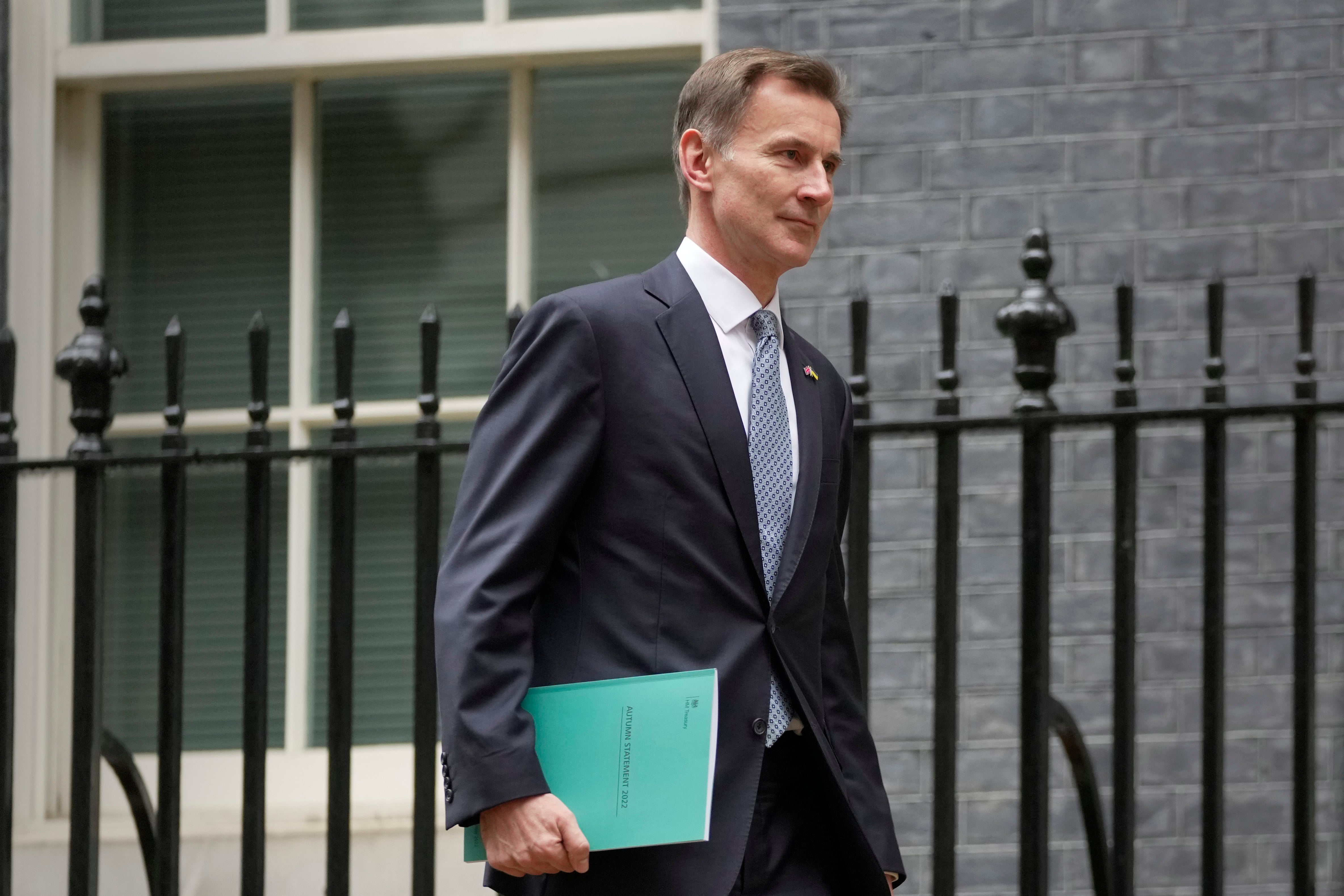UK to ease financial regulations in post-Brexit shakeup
Britain is easing banking rules brought in after the 2008 global financial crisis in a bid to attract investment and secure London’s status as Europe’s leading finance center

Your support helps us to tell the story
From reproductive rights to climate change to Big Tech, The Independent is on the ground when the story is developing. Whether it's investigating the financials of Elon Musk's pro-Trump PAC or producing our latest documentary, 'The A Word', which shines a light on the American women fighting for reproductive rights, we know how important it is to parse out the facts from the messaging.
At such a critical moment in US history, we need reporters on the ground. Your donation allows us to keep sending journalists to speak to both sides of the story.
The Independent is trusted by Americans across the entire political spectrum. And unlike many other quality news outlets, we choose not to lock Americans out of our reporting and analysis with paywalls. We believe quality journalism should be available to everyone, paid for by those who can afford it.
Your support makes all the difference.Britain is easing banking rules brought in after the 2008 global financial crisis in a bid to attract investment and secure London’s status as Europe’s leading finance center.
Treasury chief Jeremy Hunt said Friday that the changes, which follow Britain’s departure from the European Union in 2020, will make the U.K. “one of the most open, dynamic and competitive financial services hubs in the world.”
The package of more than 30 changes includes lifting a cap on bankers’ bonuses and easing capital requirements for smaller lenders. The government also said it will review regulations that hold bankers accountable for their decisions and will relax “ringfencing” rules intended to separate risky investment banking from retail operations.
Hunt said the government was using “Brexit freedoms” to make Britain more competitive. But many economists point out that the U.K.’s departure from the EU has erected barriers to trade and led some firms to shift offices and jobs to other European cities.
Last year, Amsterdam overtook London as Europe’s largest share-trading hub, though London remains the biggest financial services center overall.
The Conservative government says the rule changes will create a “smarter regulatory framework.” But critics say they could reintroduce the kind of risk that led to the 2008 crisis. The British government at the time was forced to spend billions in taxpayer money to save some banks from collapse.
Opposition Liberal Democrat Treasury spokeswoman Sarah Olney said it was “completely tone-deaf that this government is hiking taxes for hard-working families, while slashing taxes and boosting bonuses for the banks.”
“Our financial services need good and smart regulation, not more promises of slashing red tape, or a race to the bottom,” she said.